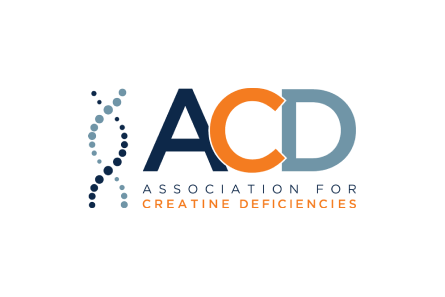Association for Creatine Deficiencies
Cycle 1
Three Cerebral Creatine Deficiency Syndromes (CCDS)—Creatine Transporter Deficiency (CTD), Guanidinoacetate Methyltransferase (GAMT) Deficiency, L-Arginine:Glycine Amidinotransferase (AGAT) Deficiency—are inborn errors of metabolism, which interrupt the formation or transportation of creatine. Speech delay is one of the most pronounced symptoms of all three CCDS.
Last updated 04/30/2025
Clinical
Disease Class
Cerebral Creatine Deficiency Syndromes
Genetic diseases
Inherited metabolic disorder
Neurological diseases
Body Systems
Digestive
Metabolic
Muscular / Skeletal
Nervous / Sensory
Organs
Brain
Heart
Liver
Known Genetic Link
Yes, one or more genes directly cause the condition
causative_genes
GAMT
GATM
SLC6A8
contributory_genes
None specified / unknown
Type of Inheritance
Autosomal recessive
X-linked recessive
Newborn Screening
Yes, for some genes
Disease Mechanism(s)
Creatine transporter disorder
Enzyme deficiency
Transport defect
Age of Onset
Early childhood (age 1+-5)
Infancy (age 0-1)
Average Age at Diagnosis
Early childhood (age 1+-5)
Life Expectancy
Adulthood (age 18-64)
Affected Sex(es)
Female
Male
National Prevalence
1001-10000
Global Prevalence
10000+
National Incidence
Less than 10
Global Incidence
Less than 10
Symptoms / Phenotypes
autism
autistic behavior
cardiac abnormalities
failure to thrive
hyperactivity
hypotonia
intellectual delay / global developmental delay
movement disorders / ataxia / tremor
seizures / epilepsy
speech delay
vomiting / nausea
Biomarkers
Diagnostic
· abnormalities of urine and plasma GAA, Creatine, and Creatinine, and lack of MRS creatine peak
Monitoring
· plasma GAA and creatine for GAMT
Existing Therapies
Alternative treatments (eg. nutritional supplements)
Organizational & Research
Cell Lines
Fibroblasts
iPSCs
LCLs
Cell Lines, Institution
Coriell Institute
Cell Lines, Involvement
Consulted
Cell Lines, share
All our cell lines are freely available
Disease Model
Mouse
Organoids
Rat
Disease Model, Involvement
Consulted
Funded
Disease Model, share
Some of our disease models are freely available
Clinical Trial Role
Meeting with regulators
Outcome measures, development
Recruitment and outreach, patients
Study protocol design, review
Biobank, Institution
Coriell Institute
Biobank, Involvement
Consulted
Center of Excellence, Institution
University of Utah
Registry
Yes, we have a registry that we created
Data Collected, Registry
Genetic data
Longitudinal natural history data
Patient contact info
Patient-reported data
Data Entered by, Registry
Patients
Platform, Registry
IAMRARE
Natural History Study
Yes, we have a natural history study that we created
Data Collected, Natural History Study
Clinical endpoints (outcomes)
Genetic data
Medication usage
Patient-reported data
Retrospective data
Platform, Natural History Study
IAMRARE
FDA Patient Listening Session
No
FDA Patient-Focused Drug Development (PFDD) Program
Yes
ICD Codes
We are working on obtaining an ICD-10 code
Yes, we have an ICD-11 code specific to our exact disease
Diagnostic Guidelines
Yes, we have guidance available on our website
Yes, we have accredited guidelines
Science Advisory Board Policies
No policies
Research Network Policies
Has CRN and willing to share policies
Research Roadmap
Yes we have a Research Roadmap, and will share policies
International Chapters
Europe
Oceania
International Partners
Europe
